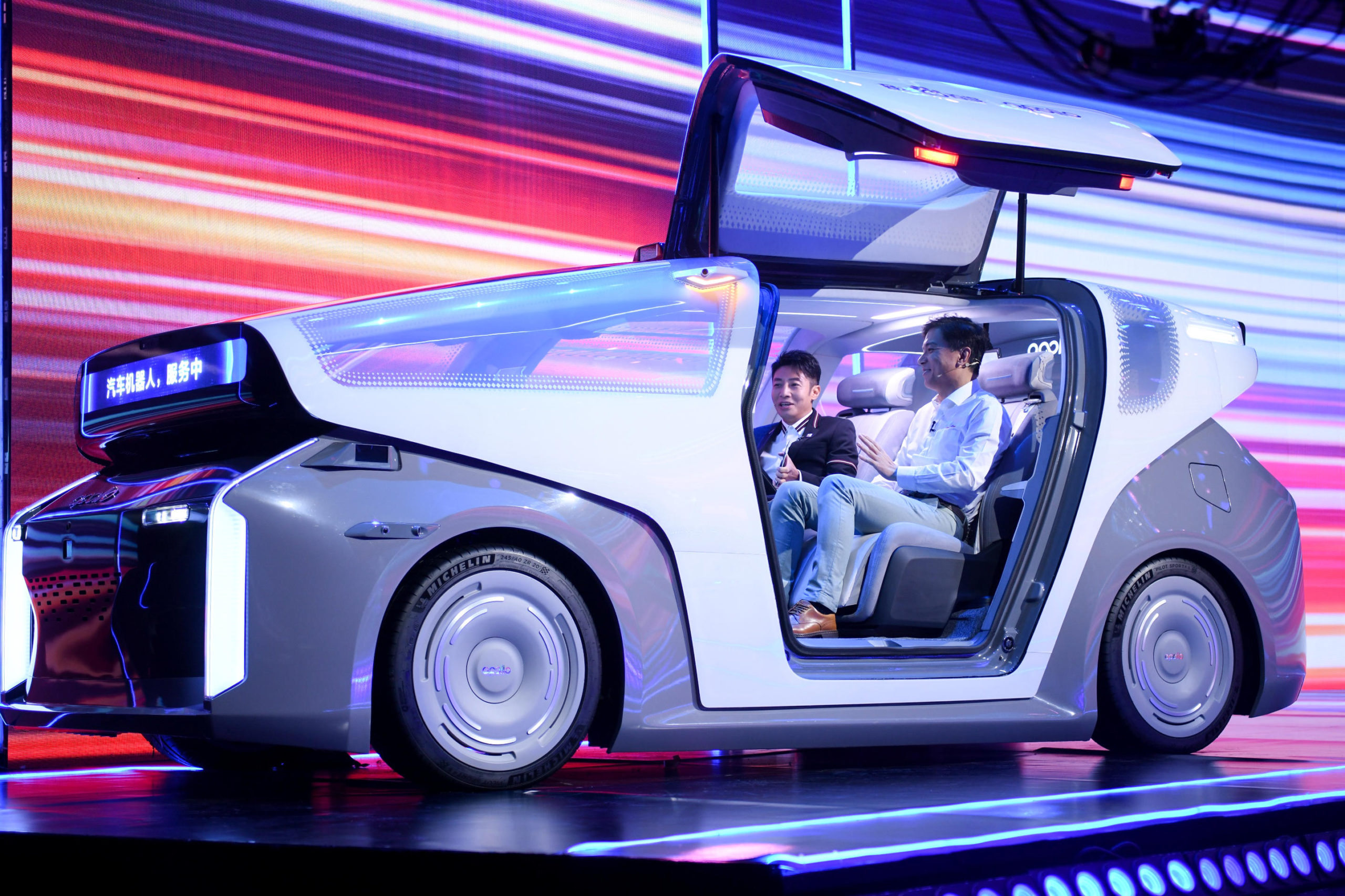Baidu’s autonomous driving unit, Apollo, has developed a new vehicle capable of Level 5 vehicle autonomy, meaning the car requires no human intervention during operation. Notably, it has no steering wheel, gas pedal, or brake pedal, signifying that drivers are completely unnecessary.
The “robocar,” as Baidu founder and CEO Robin Li called it, was showcased during a livestream event on Wednesday. It is equipped with two passenger seats, a large curved screen, an intelligent console, and electrochromic glass with varying tints based on natural brightness. This follows Apollo’s showcase of its Moon model in June.
During the event, Apollo indicated that the new vehicle will incorporate machine learning to analyze passengers’ needs and respond to verbal commands. In some scenarios, the system may even anticipate demands made by people in the vehicle.
The vehicle’s physical features were designed to match its cutting-edge technological core. It incorporates gull-wing doors, a full-glass roof embedded with external sensors that can adjust panel transparency, and roomy passenger space.
Baidu has rebranded its robotaxi app from Apollo Go to Luobo Kuaipao. Users can use the app book rides on autonomously driven rides. So far, the app has been used by passengers in Beijing, Guangzhou, Changsha, and Cangzhou. Baidu Apollo plans to extend this service to 30 cities within three years.
Li Zhenyu, vice president of Baidu Group and director of the intelligent driving business group, said on Wednesday, “We think it is the perfect time to accelerate the commercialization of robotaxis. The launch of Luobo Kuaipao would accelerate this business operation and be completely open to the public.”
Baidu has been conducting R&D on autonomous vehicles since 2013. It established Apollo in 2017. Baidu holds 2,900 patents in the field, and its self-driving cars have covered 12 million km in tests and passenger services.
Watch this: KrASIA tries Baidu’s first commercial autonomous ride-hailing service in China
